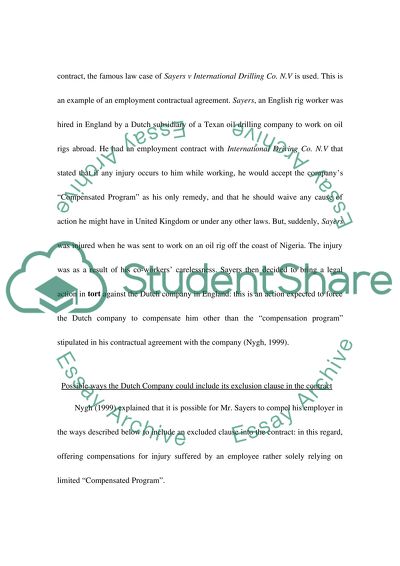Cite this document
(“Exclusion clause Case Study Example | Topics and Well Written Essays - 1750 words”, n.d.)
Retrieved from https://studentshare.org/law/1524720-exclusion-clause
Retrieved from https://studentshare.org/law/1524720-exclusion-clause
(Exclusion Clause Case Study Example | Topics and Well Written Essays - 1750 Words)
https://studentshare.org/law/1524720-exclusion-clause.
https://studentshare.org/law/1524720-exclusion-clause.
“Exclusion Clause Case Study Example | Topics and Well Written Essays - 1750 Words”, n.d. https://studentshare.org/law/1524720-exclusion-clause.


